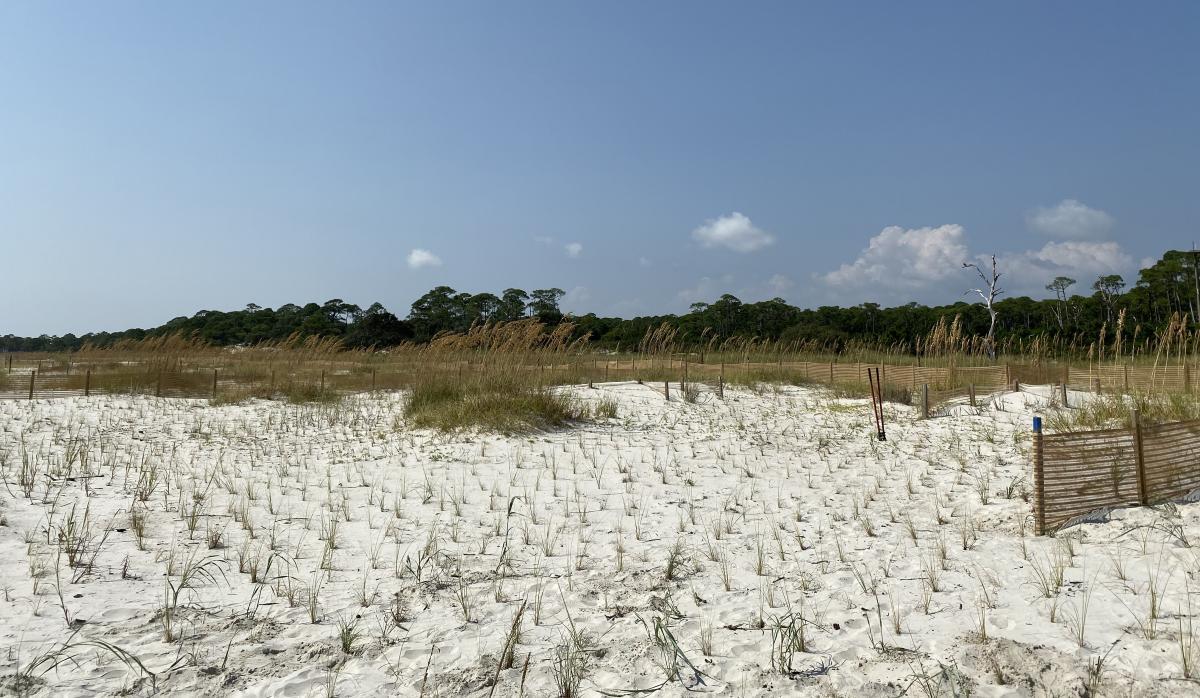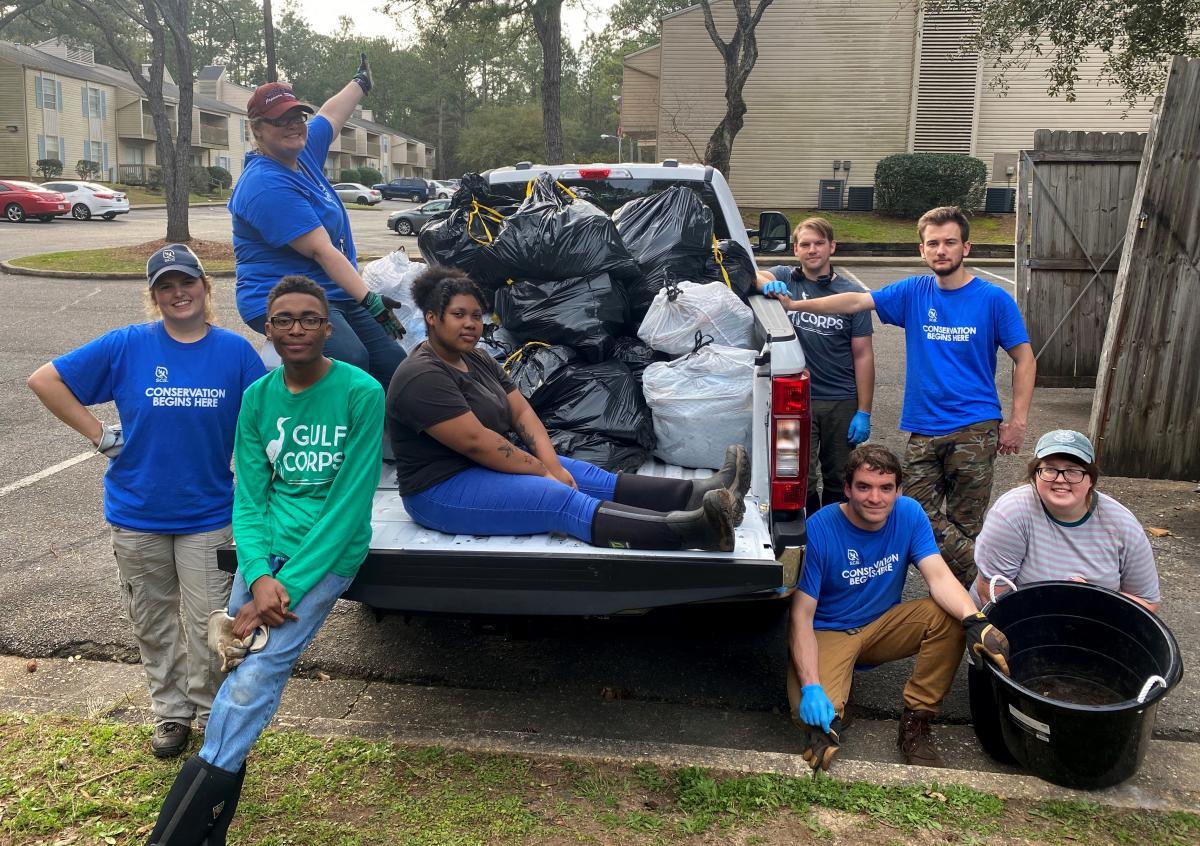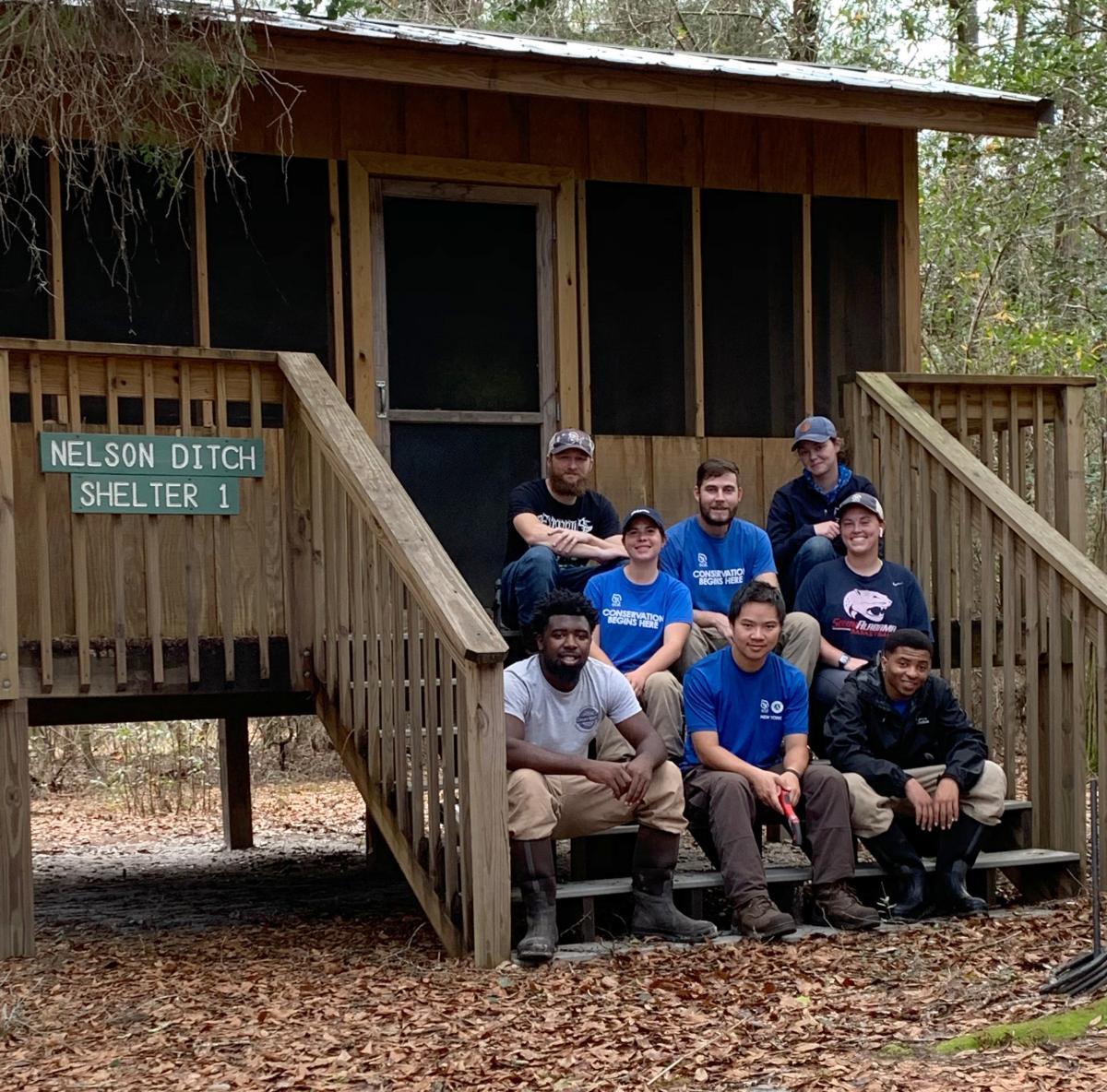Since 2018, SCA has engaged local young adults in GulfCorps, a program in which members restore coastal habitats damaged by the Deepwater Horizon oil spill while developing valuable career skills.
Since mid-March, however, SCA’s GulfCorps teams in Alabama have relocated from their waterfront worksites to their respective dens and dining rooms, due to the coronavirus. About half the 20 corps members admit they’re relieved to be in semi-seclusion with their families while the other half is disappointed to suspend the coastal component of their recovery efforts.
“I would love to be in the field,” states Boris Kresevljak, 23, “but I would much rather love to stay healthy to ensure my ability to be a useful member of this program once this outbreak as settled.”
For now, the teams are participating in online trainings, watching educational videos, and meeting via GoToMeeting. They are hopeful of resuming normal duties before the program season ends on June 19, and grateful to still have a job at a time when many do not. The region’s restoration economy has been hit by both the pandemic and plummeting oil prices; still, corps member Austin Ray is optimistic about the future.

“With my crew, I planted thousands of sea oats and grasses on Dauphin Island, cleared miles of trails, removed or treated countless invasive plants, and assisted in conducting prescribed burns,” the 25-year-old notes. “This SCA experience has shown me a plethora of new options that I either was not of aware of or did not have the connections or training to access.
“I think the work accomplished has made a positive impact on our local environment and community. We frequently would have passersby stop and chat to us. Every moment like that was a teaching opportunity to explain our purpose and the difference it would make. The ultimate goal for me is that someone else would see our work and be inspired to join a similar cause or, at a minimum, be more conscious and knowledgeable about their own impact on the environment.”
Participant Haley Gunter, 22, counts herself among those who learned a great deal over the past six months. “My eyes have definitely been opened,” she says. “I knew Alabama was the number one state as far as the amount of diversity in its ecosystems, but I didn’t know how beautiful it really was. I also didn’t know how many federal and local organizations were working together to protect it, and that gives me hope.”
“One of our most impactful projects,” adds Cody Plotniak of Daphne, AL, “was working with Mobile Bay National Estuary Program and being a part of the SCA crew that picked up 234 bags worth of litter weighing over 3,500 pounds and nearly 100 tires from Three Mile Creek. It wasn’t the most fun I have had during the 2019-2020 season, but it was the most impactful.”

Speaking with the corps members, one recognizes a profound sense of camaraderie. It is typical of SCA teams but, in this case, perhaps even deeper. This group has shared so much: the 2010 oil spill and its aftermath, their recovery work, and now the Covid-19 crisis. And with these experiences has come growth.
“During my first season with GulfCorps, as a crew member, I remember at first feeling very unsure,” states Brittany Seaborg. “I had never been in the conservation field before, everything was new. Fast forward a year and I am now leading the crew. The most rewarding part of this has been that I’ve been able to lead members who were just as unsure as I was when I first began, and watch them grow confident in this field, just like my leaders had done for me.”
And that, says Haley Gunter, is what she’ll carry forward. “We always found ways to laugh and push through the heat, mud, sweat, mosquitoes, rain, alligators, and the cold,” she says. “That is what I want to take with me, that we still found something to smile about.”

SCA’s GulfCorps is a collaboration with the National Oceanic and Atmospheric Administration, The Nature Conservancy, The Corps Network, and local partners.